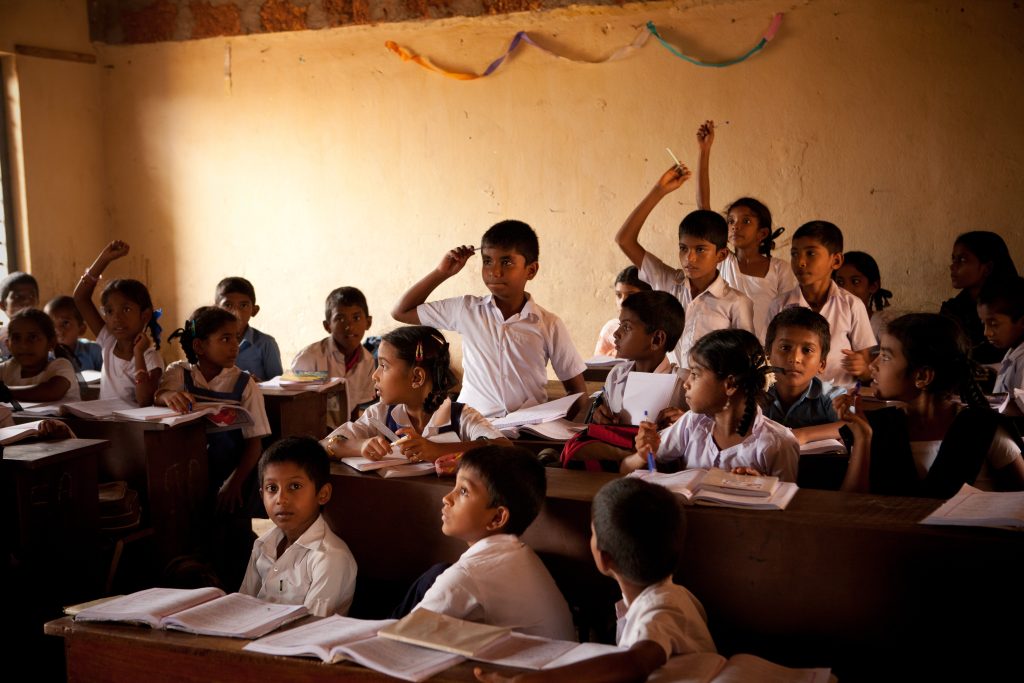
The Ministry of Education has urged all states and union territories to ensure that the entry age for Grade 1 from the 2024-25 session is six years or older.
This initiative aligns with the provisions of the National Education Policy (NEP) 2020 and the Right of Children to Free and Compulsory Education (RTE) Act, 2009.
The 2024-25 session, set to commence soon, will witness new admissions. “It is expected that in your state/union territory, the age for entry into Grade 1 has now been set at 6+,” reads a letter from Archana Sharma Awasthi, Joint Secretary of the Department of School Education and Literacy.
Department of School Education & Literacy, Ministry of Education, in a letter dated 15.02.2024, with reference to D.O. letter No. 9-2/20- IS-3 dated 31.03.2021 followed by D.O. letter of even number dated 09.02.2023, requested all states/UTs to ensure that the age of admission to… pic.twitter.com/RoIrA9h9IC
— Ministry of Education (@EduMinOfIndia) February 25, 2024
In March 2022, the Centre informed the Lok Sabha that 14 states and union territories – such as Assam, Gujarat, Puducherry, Telangana, Ladakh, Andhra Pradesh, Delhi, Rajasthan, Uttarakhand, Haryana, Goa, Jharkhand, Karnataka, and Kerala – allow admission to Class 1 for children who have not completed six years.
In the past, the Centre has stated that not revising the minimum age in line with NEP conditions affects the purity of enrollment ratios in various states.
As per the 5+3+3+4 school system outlined in NEP 2020, the first five years include three years of pre-school corresponding to the age group of three to six years, and two years of classes 1 and 2 corresponding to the age group of six to eight years.
Aishwarya Rao, Director, The Vivekalaya Group of Institutions, suggests,
“A universally followed admittance into formal education will benefit the country at large. By increasing the age of admission facilitates a crucial milestone in children’s development, fostering greater independence in managing personal care within the school environment. This age criteria has been a staple in most European countries for a long time and is a welcome shift in India’s approach to early childhood education, reflecting a commitment to providing children with an optimal start to their academic journey.”
Shikha Singh, Principal, Om Foundation, states,
“The Education Ministry has proposed setting age criteria for admission to class 1. There are numerous benefits of taking a 6+ year old child to class1. By this age children have better social skills that help them adjust easily with their young peers and adult teachers.
The enhanced cognitive development at this age helps the students achieve developmental milestones and academic success much more smoothly. This also would instill confidence in the young learners to be more assertive in their exploration of the world. All in all this aligns better with the long term goal of modern day education that is building emotional intelligence coupled with academic achievement.”
Anju Luthra, Deputy Director, The Lexicon Schools, adds on,
Starting formal education at the age of six provides an additional year for children to develop cognitive, language, and social skills through play-based learning and early childhood education programmes. In the long run as children go through a deeper, more mindful, deliberate and slow process of building foundational life capacities. The National Education Policy 2020 advocates a “5+3+3+4” design for formal schooling corresponding to the age groups:
a. 3-8 years (foundational stage)
b. 8-11 years (preparatory stage)
c. 11-14 years (middle stage)
d. 14-18 years (secondary stage)This means that early childhood education is for children of ages 3 to 5 years. This effectively means that a child should be 6 years old to be eligible for admission into Class 1, after completing three years of early childhood education.



